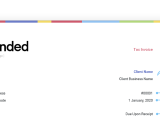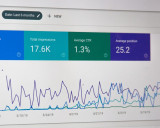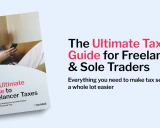Budget 2020: What’s in it for freelancers and sole traders?
Three days ago, the federal government delivered their once-in-a-century budget in response to our once-in-a-century health pandemic and follow-on economic recession. Rounded co-founder Nicholas Beames takes a look at how it will impact freelancers and sole traders.
Article contents
− +
Dealing with the budget and its ramifications individually and as a country is just like dealing with the pandemic and recession - it’s easy for some and a complete dog’s breakfast for others.
I could make this a long writeup going into endless detail on infinite minutiae of the budget, but instead, I’ll focus on what I consider essential for small business and the more defined cohort within this category; freelancers and sole traders.
Let's start with the part freelancers and sole traders play in the Australian economy.
According to Kate Carnell AO, the Australian Small Business and Family Enterprise Ombudsman, in the Small Business Counts report, as of July 2019, small businesses account for a whopping 35% of Australia’s gross domestic profit and employ 44% of Australia’s workforce. Interestingly of this number, 76% are considered ‘micro-businesses’ that employ 1 (freelancer or sole trader) to 4 people.
So it goes without saying that freelancers and sole traders pack a punch when it comes to contributing to Australia and its economy.
In no particular order as they are all critical, here’s my list of things to note:
Mental Health
We’re getting $7M to prop up and expand mental health services specifically for small businesses hit by the pandemic and recession,
Small businesses (including freelancers and sole traders) will indirectly benefit from nearly $2.5M being spent on further training for mental health professionals. The training is so they can help more per my point just above. Beyond Blue is to benefit from just over $4M in extra funding specifically to provide more services to small businesses.
Going Digital
Of the $800M in announced spending on all things digital, $22M will go towards helping small businesses take advantage of new technology that enables you to run your business better. It seems the details are yet to come.
Building like there’s no tomorrow
The figure of $7.5B - yep that’s billion - sounds like a lot, and it is. The federal government has brought forward all many of ‘national-building’ projects including highway upgrades, new and improved rail lines, the NBN upgrade ( which they should have done first time round but that’s another conversation), and more.
How do such big-ticket items help small businesses, including freelancers and sole traders? Well, this time, the federal government ‘will “draw on local businesses to stimulate local economies’. This requirement means all types of businesses will be required to support the billions of dollars in projects all around the country.
Don’t hold me to it but I think more detail will come out soon about a requirement for those BIG companies getting these BIG contracts to ensure they spend BIG on SMALL businesses to qualify for those BIG contracts.
Manufacturing to build the future
Similar to the previous section, we see $1.5B being spent on helping manufacturers be more efficient and competitive. The focus is on a few key areas being recycling, clean energy, medical products, resources technology, mineral processing, and food and beverage.
Again we’ll have to wait for more detail about this funding being tied to a requirement to engage with local and small businesses.
Apprentices... 100,000 of them
Small business is the economic breadbasket of the economy. They could do with some help in getting more hands-on tools. The federal government has pledged to cover half the wage of 100,000 apprentices for a year. The 50% of salaries they cover is capped at $7,000 per quarter. The devil will be in the detail, so read up on this and see if you can make it part of your recovery plan.
JobMaker Weekly Credit
I note the controversial $200 a week the federal government will pay any employer who hires someone who was on JobKeeper and is 16 to 35 years old. The weekly payment will last for 12 months so long as they work 20 hours a week. Bottom line is it could be worth $10,400 per employee over a year.
The controversial part is the age bracket. Why 16 to 35 years? I’ve heard lots of commentary about helping the young, which is all true - but what about the rest of us? I suspect this initiative will be tweaked over time to accommodate a more comprehensive section of the community.
Arts and Entertainment Ignored
Unfortunately, there are some obvious holes in the budget and spending plan. The Greens have slammed the Treasurer for forgetting the Arts and Entertainment Industry. An oversight they say will cost more jobs and make recovery even harder. It’s hard to disagree with this sentiment.
Often I am more surprised by what is not said, as what is said. A spokesperson for the Arts Senator Sarah Hanson-Young said that the Treasurer didn’t mention the word ‘art’ once during his delivery of the federal budget on Tuesday night.
Senator Hanson-Young’s spokesperson went on to elaborate;
“The arts and entertainment industry is vital to our economic recovery. Not only are other industries like tourism, hospitality and accommodation all going to benefit from its revival, but the sector is primed for stimulus. The industry can go in early and hard and put money into the pockets of workers who are in great need of an income and are going to spend what they earn.”
I wholeheartedly agree with that point.
Maybe the Arts and Entertainment sectors are being looked after indirectly through other stimulus measures? If so and you can shed some light on this, please let me know.
That’s my list of ‘some of the things’ I think small business, freelancers, and sole traders need to know about the 2020 federal budget.
I welcome constructive criticism and debate so feel free to comment or get in touch with your thoughts. As more detail and information is released I’ll write again.
Contents
Join newsletter
ABOUT ROUNDED
Invoicing and accounting software for sole traders. Get paid faster and relax at tax time.
























